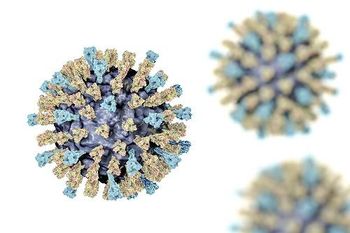
ASHP 2019 News Network: The Landscape of ABSSSI
Segment Description: Krutika N. Mediwala, PharmD, BCPS, BCIDP, assistant professor, College of Pharmacy, Medical University of South Carolina, highlights traditional agents being used to treat skin infections as well as recently approved agents.
Interview transcript (modified slightly for readability):
In my opinion, we have plenty of antibiotics right now. Some of our old faithfuls such as doxycycline, cephalexin, Bactrim are still working. We have our IV treatments such as vancomycin, daptomycin, ceftraoline, so those are all options that in the past had been in the guidelines and we use for that. But we also have some of the newer antibiotics coming up and even some of the newer antibiotics that are in their pipeline they're aiming for ABSSSI indication, and I'm not really sure that we need that but it's exciting still to have that come.
Some of the newer agents such as the lipoglycopeptides, so dalbavancin and oritavancin are changing the landscape of ABSSSI with their long half-lives and the ability to just have 1 dose that kind of takes away the need for oral antibiotics, the need for admitting the patient. The most important thing that we sometimes worry about with our skin is soft tissue infection patients is compliance. So giving someone a drug that you know has side effects such as diarrhea and can really change someone's compliance. So not having to worry about that is really helpful.
As far as unmet needs, and I often wonder that by the definition, you know, it doesn't include our diabetic foot infections, it doesn't include our animal bites. But I do wonder how we can classify some of our immunocompromised patients into these into these treatment algorithms. Because sometimes I find that we employ some of our broader agents because the patients are immunocompromised and sometimes rightfully so. But maybe we can have some delineation on when we can classify them as a patient that can probably benefit from what our normal agents are versus someone that may need our immunocompromised regimen. The other population that I'm seeing a lot of is our IV drug users. So they will have, besides just, you know, abscesses and everything else, they usually have complications such as bacteremia or osteomyelitis, but they often will present with cellulitis. So how can we identify them early on and see if any of these agents can be helpful in those settings?
Newsletter
Stay ahead of emerging infectious disease threats with expert insights and breaking research. Subscribe now to get updates delivered straight to your inbox.

































































































































